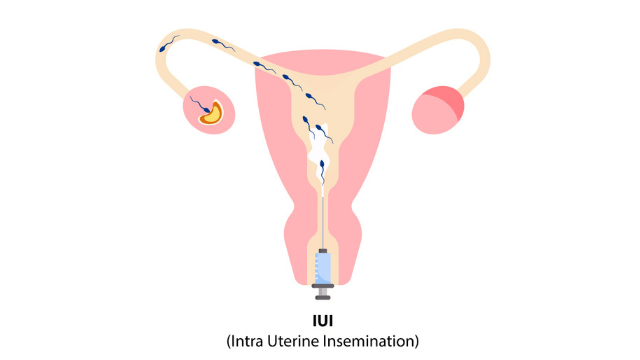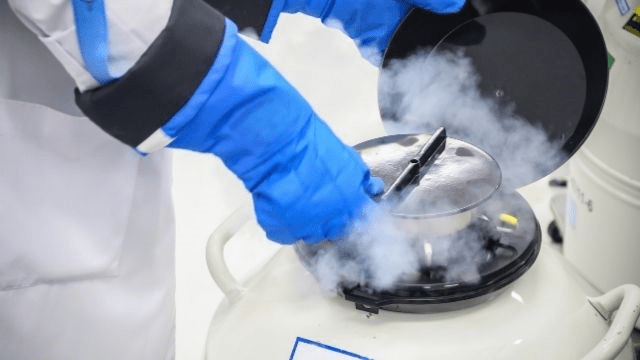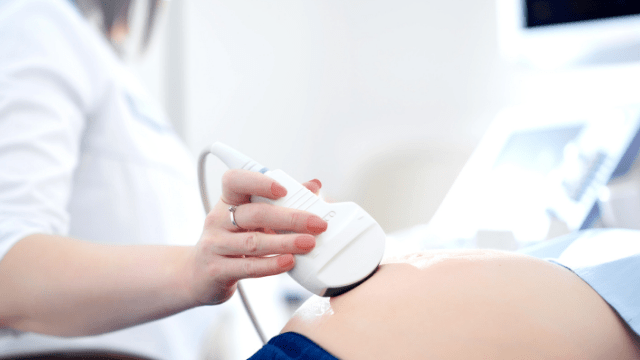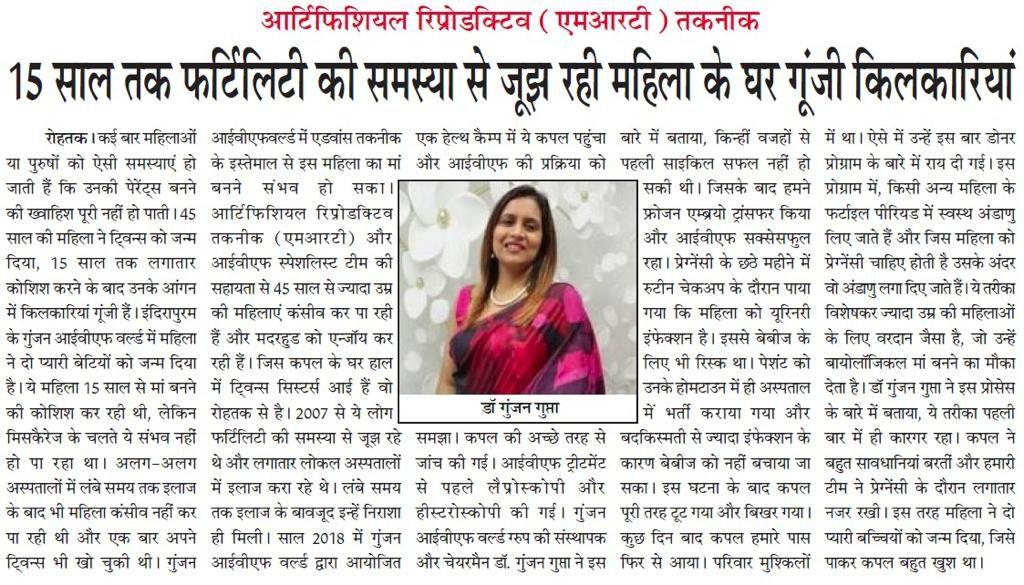Pre Conception Counselling
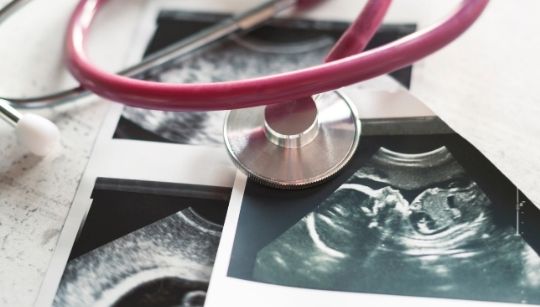
What is pre-pregnancy counseling?
Pre-pregnancy counseling is the process of educating couples who are planning to become parents. Nearly half of 200 million pregnancy cases happen unplanned. Pre-pregnancy counseling holds a significant role in avoiding poor outcomes post-delivery. It aims to educate the mother, father, and the family about the risk associated with pregnancy and managing it with proper medical consultation so as to have a healthy mother and baby at the time of delivery.
Consultants educate the will-be-parents about sexually transmitted diseases, parenthood, socially and mentally preparation for marriage and aftermath, and contraception. It prepares an individual and the couple for parenthood and the risks and the fatalities associated with it. The counseling is also applicable to men as their habits, health, and lifestyle may affect the pregnancy’s consequences.
Everything You Need to Know About Pre Conception Counselling
Importance | Candidates | What includes | Tests | Preparation | Planning a pregnancy | history of recurrent pregnancy loss | pre-existing chronic illness | What to expect
Why is it important?
The intention of pre-parental counseling is to minimize the risk and complications of being pregnant and prioritize a comfortable pregnancy for the couple and the baby. Other than standard counseling, the mother, father, and the family know about the baby’s wellness and proper pregnancy tenure.
Pre-pregnancy counseling can be helpful in the following situations:
- Identifying previously existing diseases that have been diagnosed or not diagnosed like diabetes, high blood pressure, epilepsy, etc. which can adversely affect maternal and fetal outcomes. These conditions can be managed and optimized so as to achieve good maternal and fetal outcomes.
- Detecting complications and risks for women who have been pregnant. It is necessary for situations where the previous baby had a birth disorder, been a premature baby or the mother had a miscarriage or stillbirth.
- Recognizing risks (if any) that may affect the growing baby if the woman becomes pregnant.
- If there is a preexisting genetic condition in the family example thalassemias. It becomes more important in the case of marriages in close relatives (consanguinous marriages)
Sub Treatments For Female Infertility
We are one of the Best IVF Clinic in Delhi NCR!
51.8K
Subscribers
4.6 (383 reviews)
4.5 (409 reviews)
3.5 (254 reviews)

5 Out Of 5
Who should go for it?
All those couples planning to initiate a pregnancy should be counseled, including heterosexual, lesbian, gay, bisexual, transgender, queer, intersex, asexual, and gender-nonconforming individuals.
The counseling prepares a couple mentally, emotionally, and physically towards a healthy self while taking the next big step into pregnancy.
What does pre-pregnancy counseling include?
- Pre-pregnancy counselling should consist of a detailed evaluation of the patient’s medical history, anaemia and the patient’s immunization analysis report. Evaluation of infectious conditions as HIV, Hepatitis, and Sexually transmitted diseases as Syphilis.
- Mothers with Rh-negative blood groups may face risks and complications. By pre-pregnancy counselling, one can be aware of the risks and reduce the difficulties associated with it.
- The counsellor will measure your weight and BMI and advice the couple about maintaining a healthy lifestyle through a proper diet and daily exercise. The couple should very seriously abdicate themselves from smoking and alcohol consumption and follow the advice and take care of the medical tests that the counsellor recommends.
- Counsellor starts folic acid tablets. This should ideally be started 3 months prior to conception. Folic acid deficiency is associated with defects in the development of the baby’s spinal cord, increased risk for abortions, anaemia etc. Hence folic acid supplementation is advisable whenever a lady is trying for conception.
Tests performed during preconception counselling
The counsellor may recommend specific tests that the couple should take seriously, as those tests can prepare the couple for the upcoming parenthood. Such tests include:
- A pap smear
- Complete blood count
- Genetic testing
- Diabetes screening
- Testing for thyroid
- HIV testing
- Testing for hepatitis
- Rubella testing
How to prepare for the visit?
There is no more mandatory preparation for the counseling you just have to make up your mind for pre-pregnancy counseling. Though there is some personal information that may be asked by the doctor for general inquiry. Such as about menstrual cycle, type of birth control to be used and for how long, diet and lifestyle schedule which is followed by the patient, medications that the patient take which the doctor can alter accordingly if he thinks any change is needed, any medical problem as well as the mental condition of concern that should be treated before pregnancy, recent travel plans to be informed, family history on the medical ground is to be recorded and reported as per asked. Nothing should be hidden, and all problems must be conveyed for a thorough diagnosis and a better pregnancy.
Is there any ideal time for planning a pregnancy?
There is no such ideal time for planning a pregnancy. But because of the increased risk for complications after 35 years, it is advisable to complete family before 35 years of age. The ideal gap between 2 pregnancies should be 2 years to allow for the complete care of the elder one including lactation and for the full recovery of the health of the mother.
Pre-pregnancy counselling for elderly women
If your first conception is after 40 years, then definitely you should have a health check-up and pre-pregnancy counselling before planning for pregnancy. This will tell whether you are healthy enough to carry a baby without causing grave complications to your health.
Age and Pregnancy
As age increases, women tend to be at increased risk for developing hypertension, diabetes etc. When you have such illnesses, a pre-pregnancy counselling visit ensures the optimal control of the pre-existing disease, modification of the medicines being taken, folic acid supplementation etc.
During pregnancy, elderly women tend to have an increased risk of developing pregnancy-induced hypertension, diabetes, premature labour etc.
Fibroid in pregnancy
Some women may have fibroids in their uterus which are probably first detected in their first scan in pregnancy.
Fibroids in pregnancy can cause abortions, premature labour etc. Hence pre-pregnancy checkup can help in timely detection of any such pre existing condition and thus help in reducing the pregnancy complication due to the same.
Pre-pregnancy counseling for women with a history of recurrent pregnancy loss
Pregnancy loss or Miscarriage is a very disappointing thing to happen and having recurrent miscarriages is very tragic. Having a single miscarriage does not lessen your chances of having a normal pregnancy, but having 2 or more miscarriages reduces your chances of having a normal pregnancy to some extent. In other words, a single miscarriage may occur by chance but if you have 2 or more miscarriages there may be a likely problem in 50% of the cases which needs to be treated to get a normal pregnancy outcome.
Miscarriages occurring early (<12 weeks) are more likely due to some genetic defect in the baby. Other reasons might include pre-existing illnesses or infections.
Late pregnancy loss after 12 weeks could be due to antibodies in the mother causing abnormal clotting (APLA syndrome). It could also be due to structural problems in the uterus like the presence of big fibroids inside the uterus, bands or walls inside the uterus, or due to problems with the mouth of the uterus (cervix) which gives way even before time.
When you have two or more miscarriages consult a doctor to check for any particular cause like this. If diabetes is found it can be controlled, fibroids can be removed before the next pregnancy, band or septums may be removed before the next pregnancy. If antibodies are found (APLA), treatment with medicines for blood thinning markedly improves the pregnancy outcome. Sometimes a chromosome check of the parents may be required and if found abnormal genetic counseling may be required.
Sometimes no cause may be found and we may have to closely follow up the subsequent pregnancies.
Women with pre-existing chronic illness
- Asthma and pregnancy
Mild asthmatic patients usually do not have any problems in pregnancy. Asthma improves in 1/3 of the people, remains the same in another third and worsens in the other third. You might need to consult your doctor to know about the safety of the medicines that you are taking for the same.
- Diabetes and pregnancy
Uncontrolled diabetes is associated with a lot of complications in pregnancy like miscarriages, fetal structural defects, recurrent infections in pregnancy, premature delivery, big sized baby, increased risk for operative deliveries etc.
But with the existing modalities of treatment, all these complications can be minimized if there is optimum control of sugars at the time of conception and henceforth. Preconception counselling and check-up are of utmost importance in diabetic patients so that they can carry on a healthy pregnancy.
- Chronic hypertension
If you are already a hypertensive patient, it will be better to have pre-pregnancy counselling and a health check-up to ensure that none of your organs like kidneys, liver have been affected by hypertension. Some of the medicines are not safe in pregnancy, hence may need to be changed.
- Pre-existing heart disease
If you are a heart patient, a green signal from your cardiologist is a must before you plan your pregnancy. Your pregnancy care should be in a hospital with a full-time cardiologist. You should have pre-pregnancy counselling with your obstetrician regarding the anticipated effects of pregnancy on your disease and how your disease can affect pregnancy.
Some heart conditions may increase the chances of heart disease for the baby. So a detailed anomaly scan and fetal echo may need to be done by a maternal-fetal medicine specialist.
- Epilepsy
Epilepsy if well controlled is usually associated with uncomplicated pregnancies and normal children. However, anti-epileptic medications may cause malformations for the baby (around 2% risk), hence the lady must take advise on changing or switching over to a safe dose of anti-epileptic medications before planning the pregnancy.
Uncontrolled fits in pregnancy increase the risk of complications, hence you should not stop your antiepileptic medications. A pre-pregnancy consultation from your neurologist would be preferred when you are planning to conceive, just to adjust your medicines.
- Thyroid disease
If you have hypothyroidism (your body is not producing enough thyroid), you will be on thyroid supplements. Normal functioning of the thyroid gland is essential for the baby’s brain development. You may need to increase the dose of thyroxine once you are pregnant and may require regular monitoring of thyroid levels.
In the case of hyperthyroidism, you will be on antithyroid medicines. Again the correct dose required need to be adjusted closely in pregnancy.
What to expect during pre-pregnancy counseling?
During pre-pregnancy counseling, the doctor may ask specific personal questions about the menstrual cycle, usage of birth control pills, frequency of sexual activities, previously happened sexually transmitted diseases, or vaginal infections of the past. The doctor may suggest a few lab tests and screenings.
He may also give or alter certain medications depending on the mother’s health and other related factors. The expert may recommend a better lifestyle- changing habits and following a specified diet and exercise routine. Any advice or suggestions from the doctor should not be ignored as they are concerned with the mother and the baby’s well-being.
Patient Testimonials
It’s always the word of mouth that’s the best advice
Published On: 3 Dec 2018
London to Gunjan IVF: Mrs. Pragya's journey of parenthood |Treated for pregnancy care | Gunjan IVF
Published On: 7 Oct 2018
We are pregnant!! | Pregnancy after Fibroid Removal Treatment (Myomectomy)| Gunjan IVF World

Erica Benn
It was such a nice experience with Dr. Gunjan and how she tackle our case. I must recommend this clinic as one of the best IVF clinic in Delhi-NCR. Thanks to Dr. Gunjan to give me my motherhood.

Nitesh Kumar Thakur
Gunjan IVF World in Indirapuram, Ghaziabad is the best hospital for surrogacy and ivf services in Delhi-NCR. Dr. Gunjan Gupta is founder and director of Gunjan IVF World. Gunjan IVF is the best ivf center in Indirapuram , Ghaziabad. Treatments at affordable prices.

Akansh Garg
Dr gunjan gupta is one of best gyne in delhi ncr especially in ghaziabad she explains each n everything very clearly to avoid any confusion. staff is very supportive n helpful.

Manisha Pathak
Went for treatment at various places in Delhi since 2012. Then came to know about Gunjan IVF. Started treatment in October 2020. The treatment is going on and we are quite hopeful. Gunjan ma'am is a very good doctor who treated me well and the staff are also very good and helpful.

Erica Benn
It was such a nice experience with Dr. Gunjan and how she tackle our case. I must recommend this clinic as one of the best IVF clinic in Delhi-NCR. Thanks to Dr. Gunjan to give me my motherhood.

Nitesh Kumar Thakur
Gunjan IVF World in Indirapuram, Ghaziabad is the best hospital for surrogacy and ivf services in Delhi-NCR. Dr. Gunjan Gupta is founder and director of Gunjan IVF World. Gunjan IVF is the best ivf center in Indirapuram , Ghaziabad. Treatments at affordable prices.

Akansh Garg
Dr gunjan gupta is one of best gyne in delhi ncr especially in ghaziabad she explains each n everything very clearly to avoid any confusion. staff is very supportive n helpful.

Manisha Pathak
Went for treatment at various places in Delhi since 2012. Then came to know about Gunjan IVF. Started treatment in October 2020. The treatment is going on and we are quite hopeful. Gunjan ma'am is a very good doctor who treated me well and the staff are also very good and helpful.
Our Expert Team
Dr. Gunjan Gupta Govil
Founder & Director
Founder, Director & Gynaecologist with specialization in IVF, Infertility & Laparoscopy of 20+ years of experience.
(20+ years of experience)
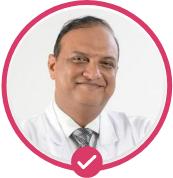
Dr. Pradyot Kumar
Founder, CEO and a specialized Neurosurgeon who is an expert in complex Brain and Spine surgeries.
(25+ years of experience)

Mr. Gaurav Singhai
COO and an entrepreneur who co-founded Gujan IVF world along with Dr Gunjan and Dr Pradyot.
(5+ years of experience)

Paritosh Sarkar
Embryologist
He is a highly experienced and successful Embryologist with more than 10 years of experience in IVF.
(10+ years of experience)
Patient Guide
Along with treating our patients, we also guide them with the help of our educational blogs and videos.
Educational Blogs

Does testicular temperature have an impact on male fertility
IVF specialists of the best IVF centre in Ghaziabad – Gunjan IVF World share an informative blog...

Is male menopause a myth or reality ?
IVF specialists of the best IVF centre in Ghaziabad – Gunjan IVF World debunk the myths about male...

Can smoking cause fertility problems in men?
IVF specialists of the best IVF centre in Ghaziabad – Gunjan IVF World share valuable insights on...
Educational Videos

What is TORCH test in infertility and why is it done?
There are numerous tests that are available to infertile couples that are recommended by some doctors, which might help them determine the cause of their infertility. One such test is the TORCH test.

What is Prolactin Hormone?
Prolactin is a hormone produced by the pituitary gland present at the brain’s base. It is best known for its role in lactation, or milk production, in breastfeeding women.However, Prolactin also plays other important roles in both men and women, such as regulating the immune system, stimulating the growth of new blood vessels, and influencing behaviour and reproductive function. In this blog, we will explore what Prolactin is, how it works, and what happens when there are imbalances in prolactin levels.

Frequently Asked Questions about Low AMH
Primordial and Preantral follicles produce AMH. So the AMH level indicates the number of eggs or egg reserves you have in your ovary. Putting simply, if your AMH level is low, then the number of eggs in your ovary is less.
Frequently Asked Questions
Does testicular temperature have an impact on male fertility
IVF specialists of the best IVF centre in Ghaziabad – Gunjan IVF World share an informative blog on one of the most ignored factors of male infertility. It is an alarming fact to...
Is male menopause a myth or reality ?
IVF specialists of the best IVF centre in Ghaziabad – Gunjan IVF World debunk the myths about male menopause through this informative blog Menopause as a term is extremely common...
Can smoking cause fertility problems in men?
IVF specialists of the best IVF centre in Ghaziabad – Gunjan IVF World share valuable insights on how smoking leads to infertility in men. Becoming parents is one of the greatest...



